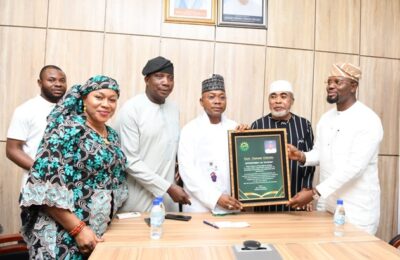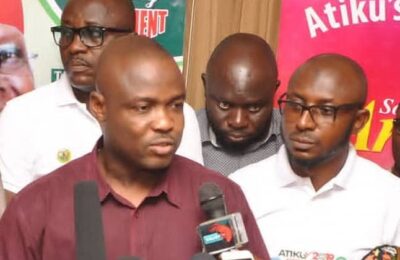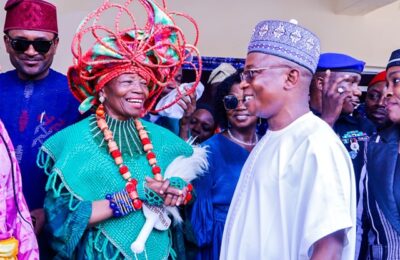When the land forgets its covenant with God, the gods of confusion take the throne.
Kogi East is not merely bleeding; it is weeping under the crushing weight of spiritual forgetfulness and political impotence. The thunder that once roared from its ancestral altars now whispers only in the memories of elders. The power that once shook thrones across Nigeria has been bartered for bowls of egotism, treachery, and fleeting political gratifications. In this crucible of destiny, a cry is rising—not for another election, not for another alignment, but for the power as of old. The kind that split rivers, dethroned evil, and raised men who carried both spear and spirit.
“We have replaced altars with ambition,” says Architect/Pastor Raymond Duke Haruna, a voice both prophetic and architectural in the reconstruction of moral foundations in Nigeria. “And now we wonder why the roof of our destiny is caving in.”
Evangelist Sunday Oguche once declared, “Any gospel that cannot reform a people cannot redeem a nation.” We are in an age where redemption is no longer fashionable, and so corruption becomes cultural. This is not merely a political commentary; this is a cry from the bones of the Igala people, from the soil of Idah, from the silence of forgotten prayers, from the betrayal of elders who traded eternal mandates for ephemeral power. This cry is soaked in ancestral anguish and spiritual desperation. The kind of cry heaven cannot ignore.
While other nations are busy advancing themselves—building universities, inventing technologies, and unlocking the vaults of progress—the Igala people are busy bowing to carved wood, masked spirits, and ancient fears. We are mounting new idolatrous altars in this centinary with the same fervor our ancestors used to build kingdoms. But how powerful are these idols and altars that they cannot save the land from poverty, from disease, from electoral fraud, from a mafia-styled system of political enslavement? How mighty are the masquerades that they cannot cast out the demons of disunity, unemployment, kidnapping, and godfatherism?
Today, if you visit the villages scattered across the plains and hills of Kogi East, you will not miss the contradiction. You will see men and women, young and old, who proclaim themselves Muslims and Christians. They bear the names of prophets and saints—Yusuf, Maryam, Peter, Paul—but their homes are temples of syncretism. Demigods stand at crossroads, shrines adorned with colored flags wave like conquered battalions, and the chants of masquerade keepers echo louder than the hymns of redemption. And yet, these same people complain of being ruled and weakened by leaders not ordained for them. Leaders they claim to despise, yet spiritually empower by their disobedience to God.
Go to the markets—Idah, Ankpa, Ejule, Ogugu—and you will struggle to buy a live local cock/fowls. Their prices has soared not because of scarcity but because of spiritual gluttony. Idol worshippers, even those who have not eaten well for days, will save every coin to purchase a cock—not for food, but to slaughter it before voiceless idols. They starve their stomachs to feed powerless deities. And yet these same idols have not delivered the land from drought, from decay, or from demonic leadership. They have not protected the children, healed the sick, nor ushered the land into peace. An Igala man who killed he-goat and fowl for his fore-fathers and Idols yesterday, fell down this morning and was rushed to Okene hospital and hospitalized due to Chrinic typhoid and malaria. Where are the gods of the land on this matter?
We have built altars of tradition without truth. We have celebrated masquerades while our children beg for scholarships. We have mounted Ibegu laws, not as moral compasses but as spiritual obstacles, choking the breath of revival. These idols did not birth the sons of David. They did not empower Elijah. They did not resurrect Christ.
Power as of old is not a slogan—it is a spiritual frequency. It is what called the sons of Ata into battle with nothing but divine instruction and ancestral fire. It is what made ordinary men like Apostle Ayo Babalola raise the dead and shut down the machinery of colonial tyranny. It is what Prophet TB Joshua carried when he touched the earth in Arigidi, yet healed kings from afar. Evangelist Abraham Onye once said, “If prayer becomes political, power becomes theatrical.”
We need the fire of Elijah to come down again—to consume every altar that exalts itself above the knowledge of God. Let us not forget: when the land of Israel was under siege, it wasn’t Baal that delivered them. It was God Almighty who answers by fire.
We need power as of old like in the days of the prophets—when men confronted kings, dismantled systems, and lifted nations not through witchcraft or native consultations, but through communion with the Almighty. The prophets of old did not consult herbalists or shrine keepers. They sought Yahweh. They knelt in dust and rose with destiny in their mouths. Let us return to such power. Let us return to Jesus. Let us return to God Almighty.
But where is that power now?
We see priests who no longer burn incense, politicians who no longer fear God, and youths chasing foreign fires while their heritage rots in their palms. A cursed generation is one that forsakes the wells their fathers dug.
Igala land is not in need of another senator. Igala land is in need of a voice in the wilderness. A revivalist. A man—or woman—who knows how to kneel and cry, who fears no cabal, who carries the scepter of righteousness not just in hand, but in heart. As Pastor Raymond Duke Haruna says, “The destiny of a people is not in the votes they cast, but in the vows they keep with heaven.”
Apostle Paul wrote in 2 Timothy 3:5, “Having a form of godliness, but denying the power thereof: from such turn away.” We have embraced the form and abandoned the force. In Kogi East, the gospel must return with fire, or the land will remain under frost.
We must now ask ourselves: when did we stop praying? When did we start selling mantles for contracts? When did we replace fasting with feasting and sacred festivals with political rallies? When did shrines of wisdom become stages for entertainers?
Kogi East has entered a defining moment—yes, a crucible. And crucibles are not for cowards.
To escape this furnace, we must return to the fire of old. The fire that birthed kings, not cowards. The fire that sanctified thrones and preserved covenants. The fire that made our mothers prophets in the marketplace and our fathers warriors at the gates.
“When a people forget the voice of God, they inherit the violence of men.” Today, we are inheriting that violence. Not just in politics, but in values, in broken homes, in betrayed faith.
“The revival coming to Kogi East,” Pastor Raymond Duke Haruna proclaims, “will not begin with a crusade—it will begin with a funeral. The funeral of pride, of idolatry, of political prostitution. Only then will resurrection come.”
Yes, the dead bones of Kogi East shall rise again, but not without prophets. Not without repentance. Not without a generation willing to shout from the hills of Ugwolawo to the plains of Dekina: WE NEED CHRIST NOW.
The men of old did not kneel to ask for votes. They knelt to hear God’s voice. And when they rose, the earth obeyed.
Let the present generation of Igala sons and daughters take heed: until we return to the ancient paths, we will continue to wander in modern confusion. Until we light the altars of consecration, the throne of Igala power will remain vacant.
But hope is not dead. It is merely waiting for a trumpet. For a people. For a prayer. For a cry.
Let the cry begin.
Let the altars burn again.
Let power as of old fall upon Kogi East.
In the name of Jesus Christ. Amen.
– Inah Boniface Ocholi writes from Ayah – Igalamela/Odolu LGA, Kogi state.
08152094428 (SMS Only)




